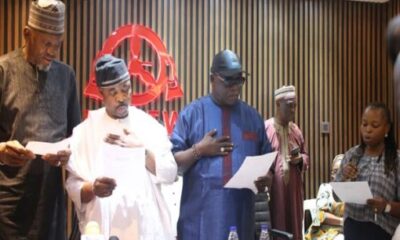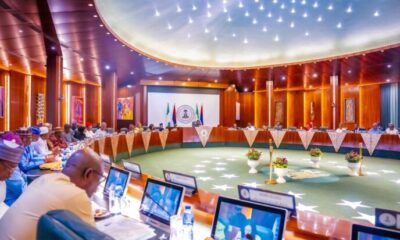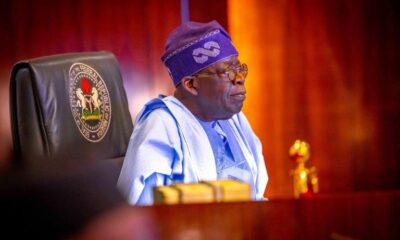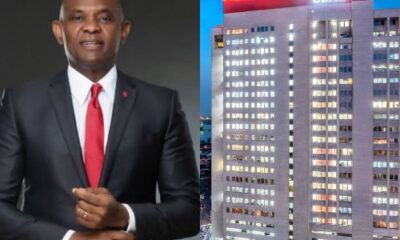Sanusi Lamido Sanusi, a former Governor of the Central Bank of Nigeria (CBN), has advised President Bola Ahmed Tinubu against occupying the office of the Minister for Petroleum Resources, saying such arrangement will make it difficult for the country to hold the Nigerian National Petroleum Corporation Limited accountable.
He stated this while speaking at the Bank Directors Summit, which was sponsored by the Bank Directors Association of Nigeria on Thursday in Abuja.
Sanusi, who served as governor of the CBN from June 2009 to February 2014, also called the NNPC the “most opaque oil company in the world.”
The outspoken economist blasted the NNPCL for reportedly failing to send enough foreign cash into government coffers despite the current administration’s withdrawal of gasoline subsidies.
The former Emir of Kano also emphasised the need to stabilise the foreign exchange market, adding that the country’s monetary policies during the last eight years had resulted in rising inflation and an economic slowdown.
According to him, the idea of the president occupying the petroleum minister office will make it difficult for anyone to raise the question of accountability.
He said, “The exchange rate needs to be stabilised and we have to address the fundamental question, why is there no money coming in? Why is the NNPCL not able to bring in dollars? Am sorry this is the question that cost me my job and I will continue asking this question until NNPCL fixes it up or until I die. Where are the dollars? We need to shine a light on the NNPCL. The finance minister cannot tell you because he doesn’t have a monitoring system that reports to him. The finance minister can’t tell you how many barrels of petrol we produce and export. It is only the NNPCL that can give those figures. The finance ministry needs to know how much oil we produce daily, how much we sell, and where the money is going.
“We are no longer paying subsidies so where are the dollars? It was under recovery during the subsidy era and that has been stopped, so where is the money? This was the issue I raised for which I was suspended, well you can suspend me again. The NNPCL is the most opaque oil company in the world. When I was in the central bank for 15 years, they had not been audited. We have to follow the money from production to export to return, where is the money going? We paid N11tn in subsidy and there is no accountability up till now. The National Assembly called the NNPCL to bring the documents, but they refused.
He added, “By the way, let me advise that the idea of the President becoming a petroleum minister is not a good idea. The last president was the minister of petroleum for eight years. When I was governor of the central bank we had a minister of petroleum so when I talk about the NNPCL, I could attack Diezani Madueke. Now, nobody can talk about petroleum because for eight years if you talk, you are attacking the president. We need that buffer, somebody has to be there, so a minister has to be there who is held accountable by Nigerians.”
In August, about three months after his inauguration, President Bola Tinubu split the Ministry of Petroleum Resources with the appointment of Ekperipe Ekpo as Minister of State, Gas Resources; and Heineken Lokpobiri as Minister of State, Petroleum Resources.
However, President Tinubu, in an apparent tradition of his predecessor, ex-President Muhammadu Buhari, kept the position of the substantive Minister of Petroleum Resources to himself.
Sanusi also called for a proper audit of the Nigerian National Petroleum Company Limited to unravel the country’s daily oil production, export and the accrued revenue, noting that this call was what cost him his job at the apex bank.
He maintained that the banking sector must shore up its trust deficit in the eyes of the public and that there is no need to amend the CBN Act to keep the apex bank free of political influences.
He stated, “It is important to talk about the current conversation emanating especially from the National Assembly, to amend the Central Bank Act. Let me add my voice to those who have said there is nothing wrong with the Central Bank of Nigeria Act. There is nothing wrong with BOFIA. The CBN Act is one of the best central banking laws in the world. In fact when we reviewed central bank laws, the only laws we saw that we would learn a few things from was Bank Negara of Malaysia.
“Now if people who are supposed to implement a law don’t implement it, the solution is not to change the law, and this reaction is kneejerk if you take away the independence of the central bank and bring it under political control. You would hurt the system and on long-term, you are institutionalising the lack of autonomy. The reality is, you have an independent autonomous central bank whose independence was undermined by a combination of politicians and central bank actors. It is time to go back to what the central bank is supposed to do and implement the law.”
The ex-CBN governor also spoke about the use of Ways and Means and how resisted the pressure to go beyond the limit requited by the law.
He said, “Look at the example of Ways and Means. That scenario only happened because, along the line, all checks and balances collapsed. When the National Assembly talks about Ways and Means, the question is: where were the oversight committees of the National Assembly? We were all asked when we were in position as governor to bring money, on several occasions. There was a day I was called by the finance minister that they needed N100bn. I told them they had reached the limit and we had to find other solutions to raise funds for the government without breaking the law.
“If this tells anything, it is that when people start to complain about too many regulations, they need to think about when regulation was rolled back in America. Regulations are dynamic and can change. We have to ensure that banks are well-managed and that banks understand the risks that they run. Now, regulations are one thing of course and the actual doing of the regulations is another thing.”
President Bola Tinubu, while reiterating the vision to drive financial access and impose a culture of integrity and innovative technology, vowed to ensure the CBN under his watch follows all regulations.
He also revealed plans to develop a financial regulatory framework to develop the country’s economy.
Tinubu, who was represented by the Minister of Finance and Coordinating Minister of the Economy, Wale Edun, said, “All issues raised from regulations, short-term liquidity in the foreign exchange market to long-term structural change, I can say that all those issues are been dealt with in the policies of the current administration. We will ensure to follow the law and do the right thing but it won’t all be done in one day. It is a direction of travel but it will take time to adjust.
“Finance banking is inherently risky and the dynamic nature of the challenges we face makes it imperative for us to collectively address them together, balancing the complexities of regulation and compliance in order to build the type of resilient system that would underpin the eventual rule to rapid, sustained and inclusive economic growth.”
On ongoing efforts to boost liquidity, the minister said, “All efforts are being made to bring in funds that will shore up the liquidity of the financial system of the foreign exchange system.”
On his part, the Chairman, Bank Directors Association of Nigeria, Mustafa Chike-Obi, said “The summit was focused on advocating for the banks’ interests and making sure they are willing partners.”
“This summit is a good platform to advocate for the interest of the banks, to make sure the banks are doing the right things and make sure they are a willing partner. The banks will be willing and able to partner with the government on these agendas of growth and reforms. We will work with you but we ask that you should please consult with us. The era of regulations without consultations should end. We are partners and if you consult with us, we will tell you how to accomplish the objectives more smoothly and cleanly.”
Meanwhile, the NNPC said it was focused at the moment on delivering the task that had been set for the national oil company, stressing that everyone was free to air their opinion.
NNPC’s Chief Corporate Communications Officer, Olufemi Soneye, told one of our correspondent that there would be no need for an official response to the claims made by the ex-CBN boss.
He explained that constant responses could hinder the enormous task before the oil company, adding that NNPC would rather concentrate in handling the work that it was established to deliver.
“Everyone is entitled to their opinion. Constant responses to every individual can hinder our work. Our focus remains on delivering energy security, managing ongoing projects, and implementing reforms,” Soneye stated.

 BIG STORY23 hours ago
BIG STORY23 hours ago
 BIG STORY1 day ago
BIG STORY1 day ago
 BIG STORY18 hours ago
BIG STORY18 hours ago
 BIG STORY1 day ago
BIG STORY1 day ago
 BIG STORY4 days ago
BIG STORY4 days ago
 BIG STORY3 days ago
BIG STORY3 days ago
 BIG STORY3 days ago
BIG STORY3 days ago
 BIG STORY4 days ago
BIG STORY4 days ago






















